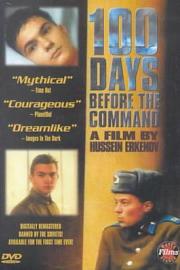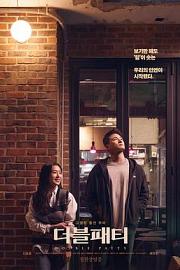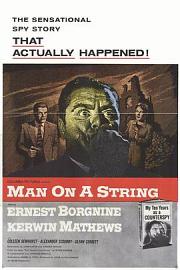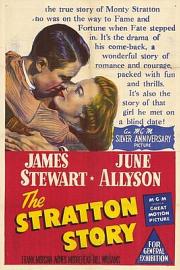
Sto dney do prikaza (1990)
On the eve of the collapse of the Soviet Union, recruits spent 100 days at a boot camp on the outskirts of a remote Russian town. Uzbek director Erkenov uses almost stream of consciousness and symbolism to depict the inner world of recruits and the senseless destruction of them by the outside world, and has more strokes on sexual abuse in the barracks. The director fooled the studio and the military with two fake "positive" scripts to get permission to shoot in the barracks, which angered the military and producers after the film was completed. The film was shown at the Berlin Film Festival in 1990 and became a hot spot. The story deliberately focuses on the confusion faced by three recruits in an army 100 days before the collapse of the Soviet Union. These rookies shoulder the task of undertaking the glorious tradition of the Soviet Red Army. But the cruel reality and ordinary barracks life made them have a strange feeling, and finally entered the world of "comrades" in these 100 days. This last work before the collapse of the Soviet Union was banned until the Berlin Film Festival in 1995 because it involved the more sensitive content of homosexuality in the military. From the slightly sarcastic way of narration, we can see that the director laments the imminent loss of power politics that has been maintained for decades. Yin Xiang: # 69thBerlinale# Panorama40. A former Soviet film is really blinded! There is no continuous plot in the film, but it is mainly about bullying and obscure homosexual lust in the former Soviet army, with a larger scale than Claire Denis's "forbidden love in the army". This is the first time I have seen a big panoramic army bathhouse scrub on the screen. This film is one of the proudest discoveries of the Berlin Film Festival. A very powerful structure of the film is the monitor and its video. The monitor acts as a ubiquitous viewer, and many transitions are done by switching to black-and-white monitor video in the same scene. There are many poetic passages in the film, including Rain Water, fog, snow, Russian wilderness, and a blurry picture pushed by the last lens zoom onto the wall, reminiscent of Michael Snow's famous experimental work [wavelength] (Wavelength,1967).
On the eve of the collapse of the Soviet Union, recruits spent 100 days at a boot camp on the outskirts of a remote Russian town. Uzbek director Erkenov uses almost stream of consciousness and symbolism to depict the inner world of recruits and the senseless destruction of them by the outside world, and has more strokes on sexual abuse in the barracks. The director fooled the studio and the military with two fake "positive" scripts to get permission to shoot in the barracks, which angered the military and producers after the film was completed. The film was shown at the Berlin Film Festival in 1990 and became a hot spot. The story deliberately focuses on the confusion faced by three recruits in an army 100 days before the collapse of the Soviet Union. These rookies shoulder the task of undertaking the glorious tradition of the Soviet Red Army. But the cruel reality and ordinary barracks life made them have a strange feeling, and finally entered the world of "comrades" in these 100 days. This last work before the collapse of the Soviet Union was banned until the Berlin Film Festival in 1995 because it involved the more sensitive content of homosexuality in the military. From the slightly sarcastic way of narration, we can see that the director laments the imminent loss of power politics that has been maintained for decades. Yin Xiang: # 69thBerlinale# Panorama40. A former Soviet film is really blinded! There is no continuous plot in the film, but it is mainly about bullying and obscure homosexual lust in the former Soviet army, with a larger scale than Claire Denis's "forbidden love in the army". This is the first time I have seen a big panoramic army bathhouse scrub on the screen. This film is one of the proudest discoveries of the Berlin Film Festival. A very powerful structure of the film is the monitor and its video. The monitor acts as a ubiquitous viewer, and many transitions are done by switching to black-and-white monitor video in the same scene. There are many poetic passages in the film, including Rain Water, fog, snow, Russian wilderness, and a blurry picture pushed by the last lens zoom onto the wall, reminiscent of Michael Snow's famous experimental work [wavelength] (Wavelength,1967).
HD
| Title | Download | Size | Publish |
|---|---|---|---|
| Sto dney do prikaza (1990) AVC.mkv | N/A | 2 Year ago |
Similar Movies
 The Asian Connection(2016)
The Asian Connection(2016) Gringa(2023)
Gringa(2023) Lift(2024)
Lift(2024) The Greatest Hits(2024)
The Greatest Hits(2024) Jesus Revolution(2023)
Jesus Revolution(2023) Deobeulpaeti(2021)
Deobeulpaeti(2021) Man on a String(1960)
Man on a String(1960) Past Lives(2023)
Past Lives(2023) Dune: Part Two(2024)
Dune: Part Two(2024) The Stratton Story(1949)
The Stratton Story(1949)